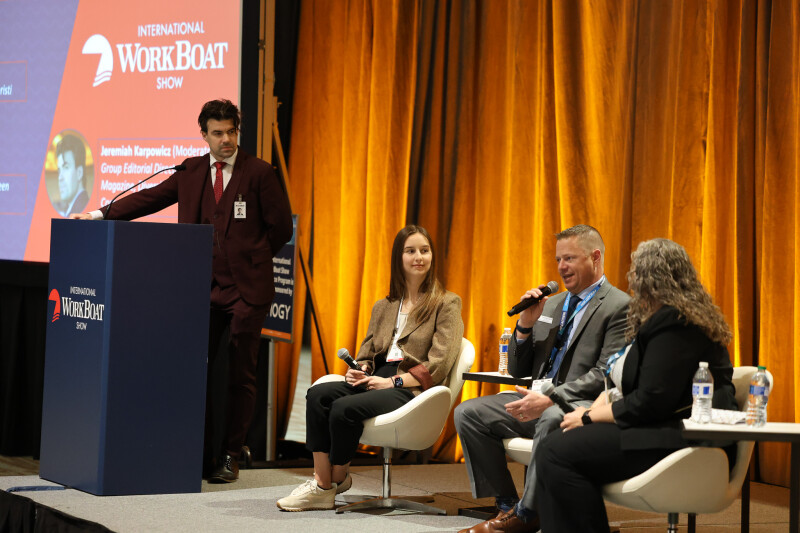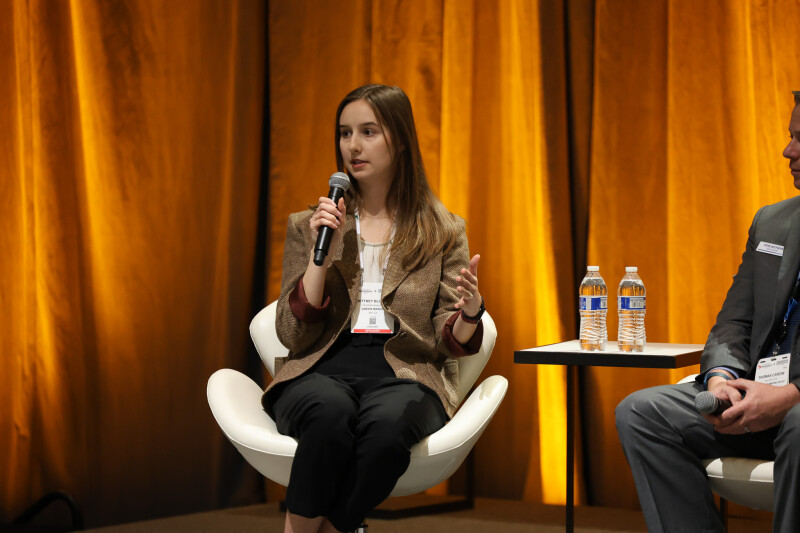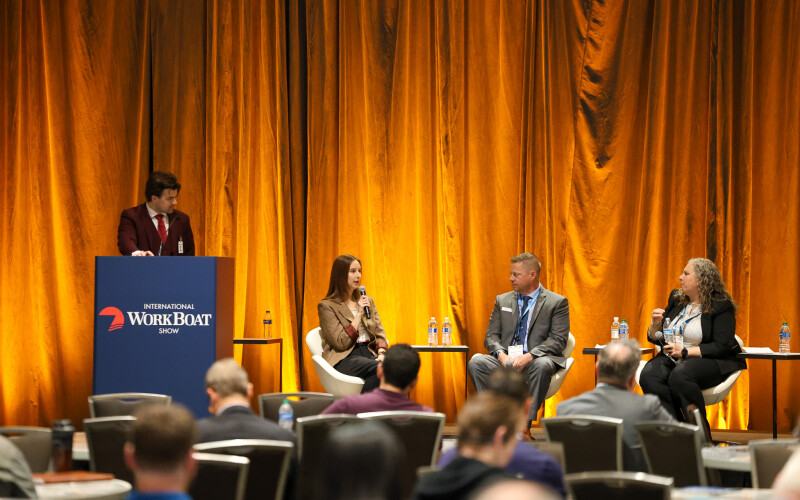Seeking to be responsible for their environments and communities, shipyards are joining other businesses in promising to “go green” and be “sustainable.”
But at the Port of Corpus Christi, Texas, “we stopped using those words,” said Sarah Garza, the port director of environmental planning and compliance. “It’s just being transparent and saying, ‘this is what we’re going to do.’”
At Corpus Christi, that covers topics of air and water quality, sediment and climate. “We listed specific targets with each one of those,” Garza said in a panel discussion Thursday at the International WorkBoat Show in New Orleans.
At Fincantieri Marinette Marine in Wisconsin, bringing up environmental quality and reducing costs starts at the bottom with everyday industrial housekeeping.

“You’re probably already doing a lot of this stuff,” said Thomas Carow, environmental health and safety director at Fincantieri. Early on in the company’s program, the discoveries started with energy management costs, and reducing daily water consumption by 500,000 gallons, Carow recalled.
“It was very low cost,” said Carow. Checking for volatile organic compound (VOC) emissions led to finding leaks in compressor systems, and energy monitoring to resetting thermostats for night hours.
“If you talk to your folks you can find a lot of low-cost, no-cost you can do,” said Carow.
Such cooperation works on a broader scale with other stakeholders in ports, said Brittney Blokker, a program manager with Green Marine, a voluntary certification program that works with port operators and maritime companies. When one Washington State port operator found several terminals were paying $10,000 each monthly for waste hauling, a new central collection system was set up to save costs and reduce diesel emissions from trucks in the waterfront neighborhoods, she said.

Other creative approaches to disposal problems can bring benefits. Dredge material placement in Corpus Christi used to depend on upland disposal sites. Working with Ducks Unlimited, the port used dredged material to restore a section of shoreline that continued to erode after Hurricane Harvey and threatened a highway, said Garza. The restoration brought back a beach and fishing area that’s used by the local population, she said.
The speakers stressed it’s important for businesses to make sure their employees and neighbors know about those efforts.
“What bolsters it is getting it out to you employees,” said Carow.
“Whether we like it or not, there is a social license to operate in our community,” said Garza.





